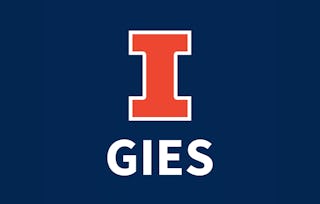In this course, participants will learn about the key financial decisions modern corporations face, as well as the alternative methods that can be employed to optimize the value of the firm’s assets. This is part of a Specialization in corporate finance created in partnership between the University of Melbourne and Bank of New York Mellon (BNY Mellon).

Corporate Financial Decision-Making for Value Creation

Corporate Financial Decision-Making for Value Creation
This course is part of Essentials of Corporate Finance Specialization


Instructors: Paul Kofman
25,145 already enrolled
Included with
529 reviews
Skills you'll gain
Details to know

Add to your LinkedIn profile
See how employees at top companies are mastering in-demand skills

Build your subject-matter expertise
- Learn new concepts from industry experts
- Gain a foundational understanding of a subject or tool
- Develop job-relevant skills with hands-on projects
- Earn a shareable career certificate

There are 4 modules in this course
This week we will define and explain the key approaches to investment evaluation utilized by corporations around the world. We will also consider the way in which sensitivity analysis might be employed so as to provide information to management beyond the simple “invest-don’t-invest” decision.
What's included
7 videos7 readings2 assignments
In week 2 we will explain the mechanics behind how firms go to the market via an initial public offering (IPO) to raise new equity capital. We then demonstrate the impact of introducing debt on the returns to shareholders and highlight the different factors that influence debt levels for firms operating in different industries. We conclude by considering how firms make decisions about the optimal level of profits that should be returned to shareholders.
What's included
8 videos1 reading2 assignments
During week 3 we will explain how takeovers and mergers occur in practice, define the key terms used in the analysis of markets for corporate control and then develop an understanding of how changes in control might be objectively assessed via financial analysis. In addition to answering the question “how might we create wealth through growth?” we will also consider how value might be created by getting smaller in our review of the impact of corporate restructuring on shareholder wealth.
What's included
6 videos1 reading2 assignments
In the final week of this course we define and demonstrate the use of different derivative securities in risk management including; forwards, futures and option contracts. We explain the key drivers of option values and explain how options might be combined to provide different payoff structures. We conclude by considering how risk management might create value for shareholders.
What's included
6 videos4 readings3 assignments1 peer review
Earn a career certificate
Add this credential to your LinkedIn profile, resume, or CV. Share it on social media and in your performance review.
Instructors

Offered by
Explore more from Finance
 Status: Free Trial
Status: Free TrialDuke University
 Status: Free Trial
Status: Free TrialThe University of Melbourne
 Status: Free Trial
Status: Free TrialUniversity of Illinois Urbana-Champaign
 Status: Free Trial
Status: Free TrialThe University of Melbourne
Why people choose Coursera for their career

Felipe M.

Jennifer J.

Larry W.

Chaitanya A.
Learner reviews
- 5 stars
75.80%
- 4 stars
20.22%
- 3 stars
3.02%
- 2 stars
0.75%
- 1 star
0.18%
Showing 3 of 529
Reviewed on Nov 15, 2025
Great insights and new learnings. Thank you coursera
Reviewed on Feb 3, 2019
A great set of courses to start the journey into finance and management!
Reviewed on Jun 15, 2020
This course was very insightful. It's a great refresher course if you have a finance background. It's also beginner-friendly if you do not have finance background.

Open new doors with Coursera Plus
Unlimited access to 10,000+ world-class courses, hands-on projects, and job-ready certificate programs - all included in your subscription
Advance your career with an online degree
Earn a degree from world-class universities - 100% online
Join over 3,400 global companies that choose Coursera for Business
Upskill your employees to excel in the digital economy
Frequently asked questions
To access the course materials, assignments and to earn a Certificate, you will need to purchase the Certificate experience when you enroll in a course. You can try a Free Trial instead, or apply for Financial Aid. The course may offer 'Full Course, No Certificate' instead. This option lets you see all course materials, submit required assessments, and get a final grade. This also means that you will not be able to purchase a Certificate experience.
When you enroll in the course, you get access to all of the courses in the Specialization, and you earn a certificate when you complete the work. Your electronic Certificate will be added to your Accomplishments page - from there, you can print your Certificate or add it to your LinkedIn profile.
Yes. In select learning programs, you can apply for financial aid or a scholarship if you can’t afford the enrollment fee. If fin aid or scholarship is available for your learning program selection, you’ll find a link to apply on the description page.
More questions
Financial aid available,
¹ Some assignments in this course are AI-graded. For these assignments, your data will be used in accordance with Coursera's Privacy Notice.

